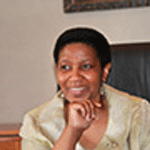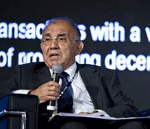Social Watch News
Published on Fri, 2013-07-19 00:00
The dramatic developments in the region carry positive indicators of a better future. Recent developments in Egypt reshuffled cards and underscored the fact that citizens are capable of getting hold of initiative and change once they feel their rights and their revolution’s achievement are in danger. The fact that more than 22 million people gathered in squares in all Egyptian cities after 22 million signatures were collected by the “Tamarod” movement, reiterates that peoples’ will is unbeatable and that people are capable of regaining their rights with their hands even after a while. |
| Published on Thu, 2013-07-18 15:26 |
Published on Thu, 2013-07-18 11:38
After President Noynoy Aquino’s State of the Nation Address (SONA) on Monday, July 22, PNoy’s proposed budget for 2014 will be under scrutiny in a forum to be held at the University of the Philippines National College of Public Administration and Governance Assembly Hall. SW Coordinating Committee Co-chair, Former National Treasurer and budget expert Professor Emeritus Leonor Magtolis Briones will be the guest speaker in the forum. Entitled “#Kabataan Roadtrip: Sa’n na Tayo Nakarating, Sa’n na Tayo Papunta?”, the public forum will focus on the government’s allocations and priorities for the youth. It is primarily organized by UP Samahan Tungo sa Progresibong Administrasyon (UP STPA), a socio-academic organization of public administration students of UP NCPAG. They are partnered with Social Watch Philippines, the People’s Public Finance Institute, the Alternative Budget Initiative, PALS NCPAG and the University Student Council. |
Published on Thu, 2013-07-18 09:50
UN Secretary-General Ban Ki-moon announced the appointment of Ms. Phumzile Mlambo-Ngcuka from South Africa as the new Executive Director of UN Women, the organization leading UN’s work on advancing gender equality and women’s rights. Ms. Mlambo-Ngcuka’s appointment came as a surprise to the race’s observers as her name had not been raised as a potential or even formal candidate for the post. |
| Source: . Published on Wed, 2013-07-17 20:21 |
Published on Sun, 2013-07-14 00:00
The United Nations’ Post-2015 Development Agenda should not simply extend MDGs, or reformulate the goals, but focus instead on global systemic reforms to remove main impediments to development and secure an accommodating international environment for sustainable development. This is a big, ambitious agenda which cannot be acted on overnight. An action plan for systemic reforms could be supplemented, but not substituted, by specific goals in some areas of economic and social development. |
Published on Sat, 2013-07-13 11:36
Slovenia has had the sharpest decline in GDP since 2008 of any euro-zone member apart from Greece, although it has so far avoided having to ask for external aid owing to having entered the crisis with a far lower sovereign debt burden. The new Government has indicated that it will continue to avoid a bailout by driving through changes including bank restructuring, privatizations, and pension and labour reforms. However, poverty has increased and many people are no longer able to meet basic needs; without state assistance, the poverty rate is estimated to rise to 24%. Those who can’t find work have dropped out of the labour force. As a result, Slovenia has joined countries where people have taken to the streets to call for a more just and balanced economy, more participatory democracy and the rule of law. |
| Published on Fri, 2013-07-12 10:05 |
Published on Thu, 2013-07-11 17:18
At a time when the United Nations Secretary General Ban Ki-moon is very close to finalizing and publishing its report "Accelerating progress towards the Millennium Development Goals and advancing the United Nations development agenda beyond 2015" to the United Nations General Assembly (NY, September 24, 2013), it is necessary for all organizations working for the right to education to mobilize NOW! It is URGENT that we submit our proposals. The report will be ready next week. |
|
Source: . Published on Thu, 2013-07-11 11:38
Posted by UNSDN on July 11, 2013 |
SUSCRIBE TO OUR NEWSLETTER










